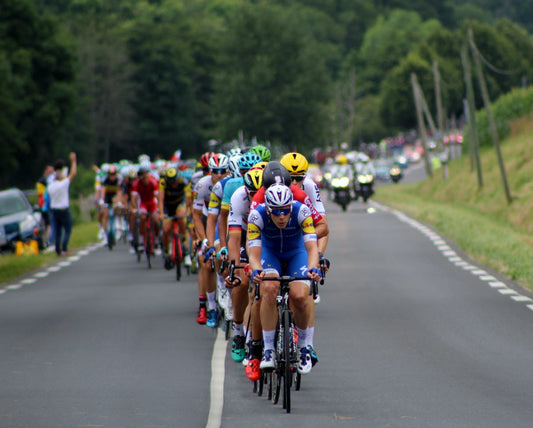Chē-ting
Verb, Noun
Riding in an illegal or unfair manner
Example usage: He was disqualified from the race for cheating.
Most used in: Cycling competitions and races.
Most used by: Competitive cyclists and race organizers.
Popularity: 8/10
Comedy Value: 4/10
Also see: Doping, Mechanical doping, Sandbagging, Drafting illegally,
What Is Cheating in Cycling?
Cheating in cycling refers to any type of unfair or illegal activity that a cyclist engages in to gain an unfair advantage. Cheating can come in many forms, such as using performance-enhancing drugs, using banned equipment, or engaging in other unethical practices. It is important to remember that cheating can have serious consequences, both for the cyclist and for the sport of cycling in general.
The use of performance-enhancing drugs is a common form of cheating in cycling. This has been a major problem in cycling for decades, with many cyclists using banned substances to gain an edge over their competitors. According to the World Anti-Doping Agency, the use of performance-enhancing drugs in cycling has been on the rise in recent years. In 2019, the agency reported that the number of positive tests among cyclists had increased by nearly 20% from the previous year.
In addition to performance-enhancing drugs, some cyclists have also been known to use banned equipment in order to gain an unfair advantage. This includes the use of motorized bikes, which are not allowed in most cycling competitions. The use of motorized bikes is a violation of the rules of cycling, and can result in severe penalties if the cyclist is caught.
Cheating in cycling is a serious problem, and it is important for cyclists to understand the consequences of engaging in such activities. Cheating can lead to disqualification from competitions and can tarnish the reputation of the sport. By understanding the rules of cycling and following them, cyclists can help ensure that the sport remains fair and clean.
to the page.The History of the Term 'Cheating' in Cycling
The term 'cheating' has been used in cycling since the late 1800s. It was first used in France to refer to cyclists who attempted to gain an advantage by taking shortcuts on the racecourse. This was seen as an unfair advantage over the other cyclists who followed the rules of the racecourse.
The earliest recorded use of the term 'cheating' was in 1887 in the French newspaper Le Petit Journal. The article described a cyclist who had attempted to take a shortcut on the course and was subsequently disqualified. This was the first time the term 'cheating' was used in a cycling context.
Since then, the term 'cheating' has become a part of the cycling lexicon. It has been used to refer to any form of cheating or rule-breaking in cycling, including the use of performance-enhancing drugs, the use of illegal equipment, and other forms of dishonesty.
The term 'cheating' has become so closely associated with cycling that it is now used as a synonym for any form of rule-breaking in sport. Cheating in cycling is still seen as a serious offense and is punishable by disqualification and other penalties.












